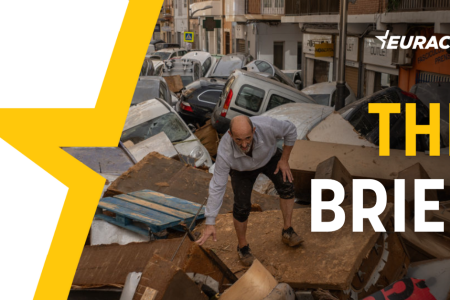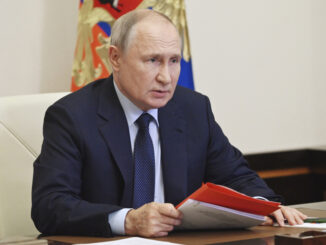
The stark contrast between the reality on the ground and the recommendations made in former Finnish president Sauli Niinistö’s report highlighted the shortcomings of Europe’s preparedness for such events.
Meanwhile, European Commission President Ursula von der Leyen said, “what we are seeing is devastating.”
“This is the dramatic reality of climate change. And we must prepare to deal with it,” she added.
Niinistö’s report advocates a “whole-of-government approach” urging local, regional, national and EU authorities to coordinate effectively, adding it also needs a “whole-of-society approach”. This demands governments work hand-in-hand with the private sector, civil society, and individual citizens to foster community-wide resilience.
One example of Europe’s preparedness challenge is the EU-mandated public alert system, which all member states require under a 2018 EU directive.
In Spain, the public alert system – ES-Alert- was not activated in Valencia until late in the evening, long after the flooding had begun and hundreds of people were already at risk. In the densely populated province, home to 2.6 million inhabitants, people went about their daily lives unaware of the growing danger.
Although high-risk warnings were issued throughout the day, authorities did not officially flag them to the public, despite regional media urging people to stay home since the early hours of the afternoon.
While the University of Valencia cancelled classes and sent staff home as a precaution, most residents were left without any official guidance, and hundreds of businesses did not suspend their activities, putting the lives of their workers at risk.
Responsibility for issuing a level 2 public alert (sent to mobile phones) lays with the regional government. They sent out the first warning at 20:11, by which time many people were already stranded by rising waters.
A second alert followed nearly an hour later, urging residents to move away from nearby rivers to higher ground. Madrid could have escalated the crisis to level 3—which has never been declared in Spain—thereby handing control over to the national authorities, despite not being legally obliged.
While no early alert could have fully spared Valencia from the economic toll, including damaged infrastructure and thousands of destroyed vehicles and homes, timely warnings might have prevented the human cost of over 200 lives – a figure that is expected to rise as the search for the missing continues.
Niinistö’s report advocates for a “preparedness-by-design” approach, which prioritises proactive planning over last-minute responses. Such an approach is crucial in a region like Valencia, which experiences regular severe weather events.
In 2023, the newly elected centre-right Valencian government dismantled a regional emergency unit initiated by the previous left-leaning administration, which had yet to be fully staffed and implemented. This investment, which represented a mere 0.03% of the Valencian budget, could have helped coordinate the response to precisely this kind of crisis that unfolded this week.
Moreover, as Valencia Plaza reported, flood mitigation projects—which depend on the government in Madrid—intended to prevent exactly this kind of disaster have been delayed for over 15 years. While achieving “zero risk” is impossible, a consistent public investment could lessen the impact of inevitable weather crises, experts told the local daily.
Preparedness cannot be limited to immediate responses; it demands a shift in mindset, building enduring resilience into public safety frameworks that transcend political divides.
“Security is a public good,” reads the Niinistö report.
The tragedy in Valencia reminds us that crisis preparedness is not about political allegiance. It is about safeguarding communities, protecting lives, and ensuring the structures we rely on in times of crisis are always ready, beyond the reach of shifting political winds.
The wake-up call from Valencia is clear: Europe must commit to proactive, local, and resilient approaches to crisis management.
We give you energy news and help invest in energy projects too, click here to learn more
Crude Oil, LNG, Jet Fuel price quote
ENB Top News
ENB
Energy Dashboard
ENB Podcast
ENB Substack






